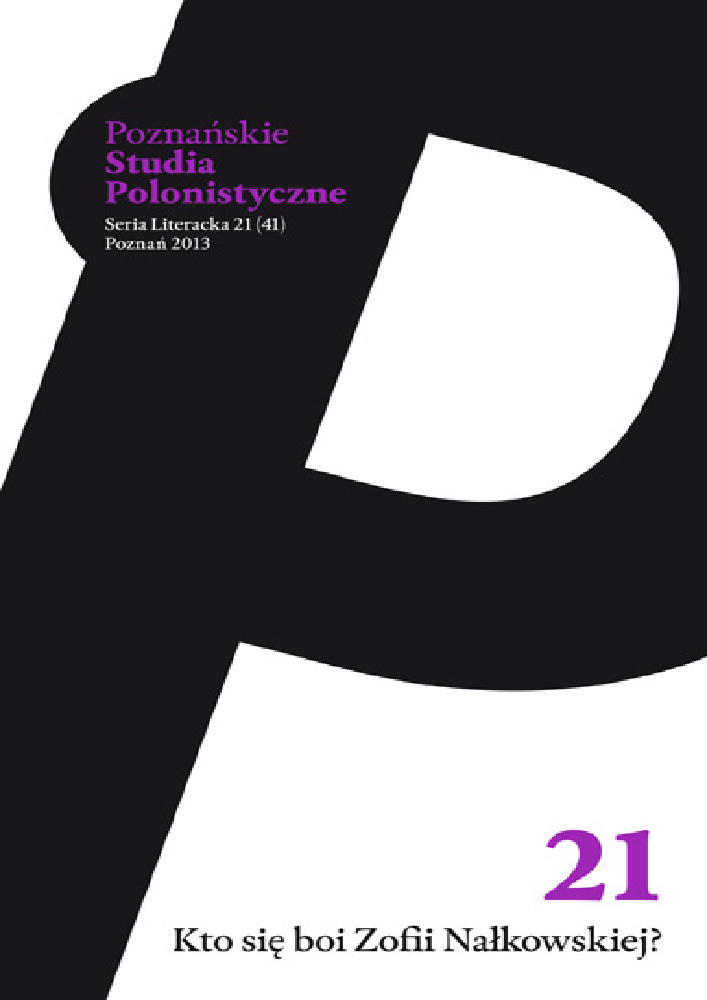Abstract
The article discusses new and republished translations of Susan Sontag’s work, recently launched by the Karakter publishing house: Regarding the Pan of Others, On Photography, and Against Interpretation and Other Essays. The article focuses on the elements of Sontag’s thought that make her a forgotten mother of feminist and gender theoreticians, as well as such influential critics as Michel Foucault and Roland Barthes. The article points out to continuations of Sontag’s thought in contemporary theoretical and social projects, and to the pertinence of her critical observations on theories based on metaphysics of presence: psychoanalysis, Marxism, or hermeneutics. The article also touches upon history of war photography and related war journalism, and upon the ambivalent quality of imaging of the misery of war. It also present historical and cultural circumstances of the development of Sontag’s thought in the intellectual milieu of New York in the 1960s. The discussion recapitulates the main statements of Sontag’s essays, relating them to a wider theoretical context, which is aimed at a reappraisal of the forgotten intelectual in the history of literature.
References
Bielik-Robson A., Strażniczka realnego, czyli psychoanaliza jako szansa na renesans metafizyki, http://www.kronos.org. pl/index.php?23275,379 [dostęp: 19 listopada 2012].
Fanon F., Czarna skóra, białe maski, przeł. L. Magnone, w: Studia postkolonialne nad kulturą i cywilizacją polską, red. K. Stępniak, D. Trześniowski, Lublin 2010.
Fiedorczuk J., Poranek Marii i inne opowiadania, Wrocław 2010.
Fuchs-Adams S., Women on War: Mary McCarthy, Susan Sontag and Diana Trilling Debate the Vietnam War, „Women’s Studies” 2008, t. 37, nr 8, s. 987–1007.
Haraway D., Wiedze usytuowane. Kwestia nauki w feminizmie i przywilej częściowej/ograniczonej perspektywy, przeł. A. Czarnacka, 2009, http://www.ekologiasztuka.pl/think.tank.feministyczny/readarticle.php?article_id=207 [dostęp: 28 grudnia 2012].
Iwasiów I., Parafrazy i reinterpretacje. Wykłady z teorii i praktyki czytania, Szczecin 2004.
Mieszko-Wiórkiewicz J., And the winner iiiiiiiiis… O Susan Sontag pisze Joanna Mieszko-Wiórkiewicz , „Czas Kultury” 2005, nr 1, s. 110–117.
Penner J., Gendering Susan Sontag’s Criticism in the 1960’: the New York Intellectuals, the Counter Culture, and the „Kulturkampf” over „The New Sensibility, „Women’s Studies” 2008, t. 37, nr 12, s. 921–941.
Sontag S., Odrodzona. Dzienniki, tom 1. 1947–1963, przeł. D. Żukowski, Kraków 2012.
Sontag S., Psychoanaliza a „Life against death” Normana Oliviera Browna, w: Przeciw interpretacji i inne eseje, Kraków 2012.
Sontag S., Widok cudzego cierpienia, przeł. S. Magala, Kraków 2010.
Witnessing history/embodying testimony: gender and memory in post-apartheid South Africa , „Journal of the Royal Anthropological Institute” 2011, nr 17, suplement 1, s. 92–112.
Žižek S., Przekleństwo fantazji, przeł. A. Chmielewski, Wrocław 2001.
License
Authors
Authors of texts accepted for publication in „Poznańskie Studia Polonistyczne. Seria Literacka” are required to complete, sign and return to the editor's office the Agreement for granting a royalty-free license to works with a commitment to grant a CC sub-license.
Under the agreement, the authors of texts published in „Poznańskie Studia Polonistyczne. Seria Literacka” grant the Adam Mickiewicz University in Poznań a non-exclusive, royalty-free license and authorize the use of Attribution-NoDerivatives 4.0 International (CC BY-ND 4.0)Creative Commons sub-license.
The authors retain the right to continue the free disposal of the work.
Users
Interested Internet users are entitled to use works published in „Poznańskie Studia Polonistyczne. Seria Literacka” since 2016, for non-commercial purposes only, under the following conditions:
- attribution - obligation to provide, together with the distributed work, information about the authorship, title, source (link to the original work, DOI) and the license itself.
- no derivatives - the work must be preserved in its original form, without the author's consent it is not possible to distribute the modified work, such as translations, publications, etc.
Copyrights are reserved for all texts published before 2016.
Miscellaneous
Adam Mickiewicz University in Poznań retains the right to magazines as a whole (layout, graphic form, title, cover design, logo etc.).
